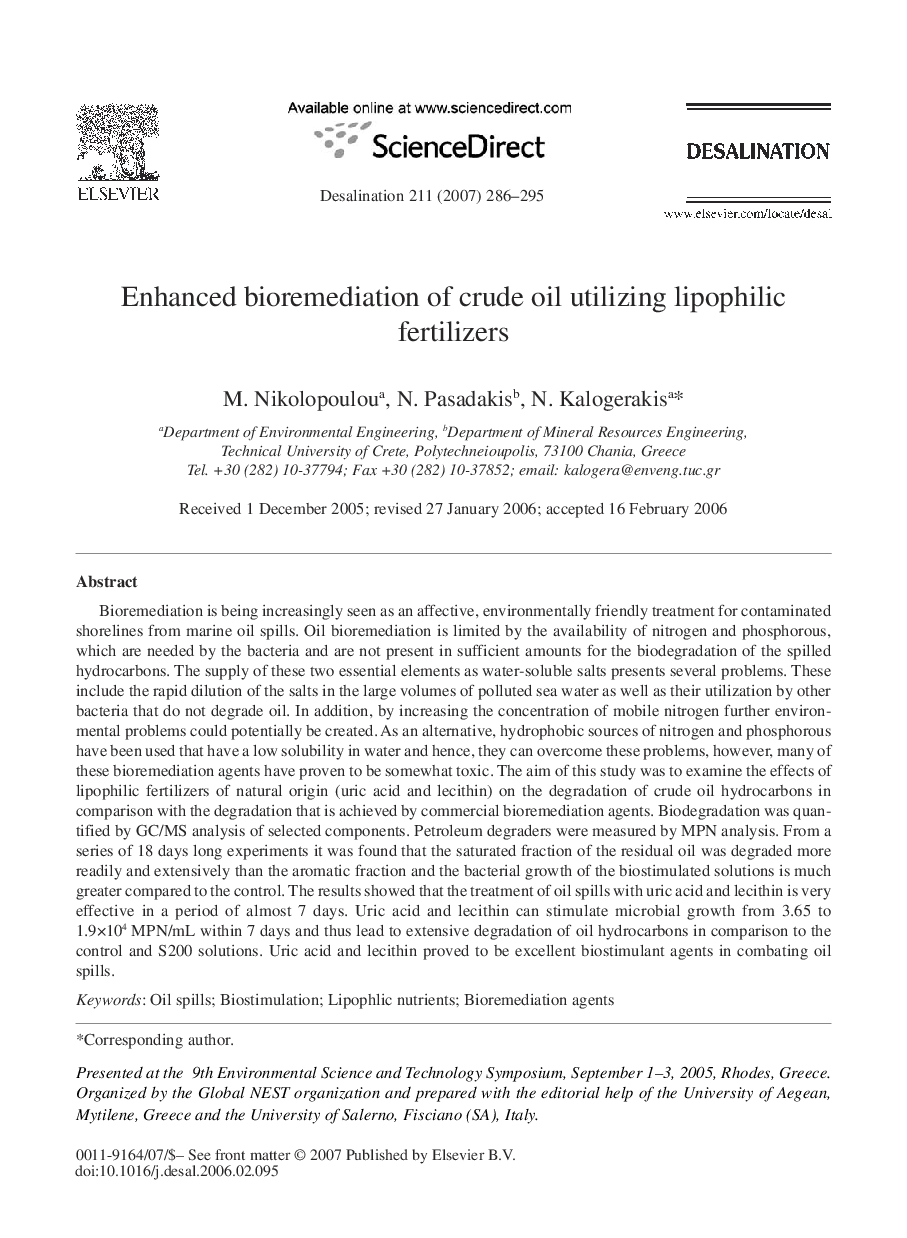| کد مقاله | کد نشریه | سال انتشار | مقاله انگلیسی | نسخه تمام متن |
|---|---|---|---|---|
| 628007 | 1455479 | 2007 | 10 صفحه PDF | دانلود رایگان |

Bioremediation is being increasingly seen as an affective, environmentally friendly treatment for contaminated shorelines from marine oil spills. Oil bioremediation is limited by the availability of nitrogen and phosphorous, which are needed by the bacteria and are not present in sufficient amounts for the biodegradation of the spilled hydrocarbons. The supply of these two essential elements as water-soluble salts presents several problems. These include the rapid dilution of the salts in the large volumes of polluted sea water as well as their utilization by other bacteria that do not degrade oil. In addition, by increasing the concentration of mobile nitrogen further environmental problems could potentially be created. As an alternative, hydrophobic sources of nitrogen and phosphorous have been used that have a low solubility in water and hence, they can overcome these problems, however, many of these bioremediation agents have proven to be somewhat toxic. The aim of this study was to examine the effects of lipophilic fertilizers of natural origin (uric acid and lecithin) on the degradation of crude oil hydrocarbons in comparison with the degradation that is achieved by commercial bioremediation agents. Biodegradation was quantified by GC/MS analysis of selected components. Petroleum degraders were measured by MPN analysis. From a series of 18 days long experiments it was found that the saturated fraction of the residual oil was degraded more readily and extensively than the aromatic fraction and the bacterial growth of the biostimulated solutions is much greater compared to the control. The results showed that the treatment of oil spills with uric acid and lecithin is very effective in a period of almost 7 days. Uric acid and lecithin can stimulate microbial growth from 3.65 to 1.9×104 MPN/mL within 7 days and thus lead to extensive degradation of oil hydrocarbons in comparison to the control and S200 solutions. Uric acid and lecithin proved to be excellent biostimulant agents in combating oil spills.
Journal: Desalination - Volume 211, Issues 1–3, 10 June 2007, Pages 286-295